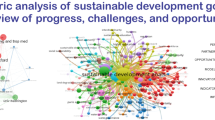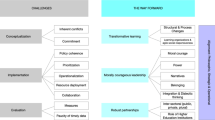Abstract
With the delegation of ethical checking mechanisms to the institutional review boards (IRBs), flexible interpretations of overarching research ethics principles differed across scientific and cultural settings. This article is a comparative case study of ethical frameworks for social research in the Philippines and Taiwan. Justifications in choosing the two cases preponderantly focused on data trends regarding research and development (R&D) policy and practice. This article compared the elements observed in the two frameworks, specifically in terms of: national regulations, curricular requirements, procedures for IRB review application, and other arrangements. Findings revealed that the Philippine academe enjoys relative autonomy or described as more fragmented, unlike Taiwan institutions that strictly follow centralized and country-wide standardization. The intensification of research ethics in Taiwan did not, however, hamper R&D efforts. On the contrary, the Taiwan model may have strengthened the current research ecosystem and bolstered confidence in the different sectors, thus generating multi-sectoral funding and collaborations.


Similar content being viewed by others
Notes
The use of the term ‘IRB Centers’ is not officially acknowledged in Taiwan. It is used in this article to emphasize that not all institutions may be granted IRB accreditation. Instead, some institutions would follow a customary practice of submitting their review applications to an accredited IRB that they are in agreement with, implying that IRBs cater to client institutions that function akin to a ‘consultancy center’. For consistency, the use of ‘IRB Center’ is only used for collective terminology.
References
Aluwihare-Samaranayake, D. 2012. Ethics in qualitative research: A view of the participants’ and researchers’ world from a critical Standpoint. International Journal of Qualitative Methods 11 (2): 64–81. https://doi.org/10.1177/160940691201100208.
Amranova, N. 2019. Unethical experiments’ painful contribution to today’s medicine. CNN. https://edition.cnn.com/2019/01/09/health/unethical-experiments/index.html.
Anabo, I. F., I. Elexpuru-Albizuri, and L. Villardón-Gallego. 2019. Revisiting the Belmont Report’s ethical principles in internet-mediated research: Perspectives from disciplinary associations in the social sciences. Ethics and Information Technology 21 (2): 137–149. https://doi.org/10.1007/s10676-018-9495-z.
AREE. 2021. Our services. https://ethics.moe.edu.tw/intro_en/.
Baines, J. T., C. N. Taylor, and F. Vanclay. 2013. Social impact assessment and ethical research principles: Ethical professional practice in impact assessment Part II. Impact Assessment and Project Appraisal 31 (4): 254–260. https://doi.org/10.1080/14615517.2013.850306.
Bak, H.-J. 2018. Research misconduct in East Asia’s research environments. East Asian Science, Technology and Society: An International Journal 12 (2): 117–122. https://doi.org/10.1215/18752160-6577620.
Balbuena, S. E., and R. A. Lamela. 2015. Prevalence, motives, and views of academic dishonesty in higher education. Asia Pacific Journal of Multidisciplinary Research 3 (2): 69–75. https://files.eric.ed.gov/fulltext/ED575015.pdf.
Bartlett, E. E. 2008. International analysis of institutional review boards registered with the U.S. Office for Human Research Protections. Journal of Empirical Research on Human Research Ethics 3 (4): 49–56. https://doi.org/10.1525/jer.2008.3.4.49.
Bernardo, J. 2021. DepEd probes teachers allegedly buying ready-made research papers. ABS-CBN News. https://news.abs-cbn.com/news/01/25/21/deped-probes-teachers-allegedly-buying-ready-made-research-papers.
Bracken-Roche, D., E. Bell, M. E. Macdonald, and E. Racine. 2017. The concept of ‘vulnerability’ in research ethics: An in-depth analysis of policies and guidelines. Health Research Policy and Systems 15 (1): 8. https://doi.org/10.1186/s12961-016-0164-6.
British Council. 2018. Country report: The Republic of the Philippines. https://www.qaa.ac.uk/docs/qaa/international/country-report-the-republic-of-the-philippines.pdf?sfvrsn=d7b5fe81_2.
Cannella, G. S., and Y. S. Lincoln. 2007. Predatory vs. dialogic ethics. Qualitative Inquiry 13 (3): 315–335. https://doi.org/10.1177/1077800406297648.
Chawla, D. S. 2020. Russian journal retract more than 800 papers after ‘bombshell’ investigation. Science Mag. https://www.sciencemag.org/news/2020/01/russian-journals-retract-more-800-papers-after-bombshell-investigation.
Jan, and P. Chen. 2016. Lessons from Taiwan’s economic development. Orbis 60 (4): 515–530. https://doi.org/10.1016/j.orbis.2016.08.009.
Chou, C. 2018. The foundation of knowledge production: Research ethics. Center for Educationin Taiwan.
Clough, B. A., M. M. Campbell, T. A. Aliyeva, N. J. Mateo, M. Zarean, and A. O’Donovan. 2013. Protocols for protection of human participants: A comparison of five countries. Journal of Empirical Research on Human Research Ethics 8 (3): 2–11. https://doi.org/10.1525/jer.2013.8.3.2.
Cororaton, C. B. 2003. Research and development and technology in the Philippines PIDS: Perspective Paper Series No. 10. https://pidswebs.pids.gov.ph/CDN/PUBLICATIONS/pidsbk03-ppstechnology.pdf.
Cruz, N. H. 2012. Sotto: What really happened in plagiarism issue. Philippine Daily Inquirer. https://opinion.inquirer.net/41218/sotto-what-really-happened-in-plagiarism-issue.
DePoy, E., and L. N. GitLin. 2016. Research ethics. In Introduction to research, 24–42. Elsevier. https://doi.org/10.1016/B978-0-323-26171-5.00003-3.
Dixon-Woods, M., E. Angell, R. E. Ashcroft, and A. Bryman. 2007. Written work: The social functions of research ethics committee letters. Social Science & Medicine 65 (4): 792–802. https://doi.org/10.1016/j.socscimed.2007.03.046.
Dooly, M., E. Moore, and C. Vallejo. 2017. Qualitative approaches to research on plurilingual education / Enfocaments qualitatius per a la recerca en educació plurilingüe / Enfoques cualitativos para la investigación en educación plurilingüe, ed. E. Moore & M. Dooly. Research-Publishing.Net. https://doi.org/10.14705/rpnet.2017.emmd2016.9781908416476.
Fiesler, C., and N. Proferes. 2018. “Participant” perceptions of Twitter research ethics. Social Media + Society, 4(1), 205630511876336. https://doi.org/10.1177/2056305118763366.
Friesen, P., A. Yusof, and M. Sheehan. 2019. Should the decisions of institutional review boards be consistent? Ethics & Human Research 41 (4): 2–14. https://doi.org/10.1002/eahr.500022.
Focus Taiwan. 2017. NTU head says he will not serve another term. CNA. https://focustaiwan.tw/culture/201703180015.
Gavilan, J. 2016. CHED head? Lapuz plagiarized parts of his UST book. Rappler. https://www.rappler.com/newsbreak/investigative/jose-david-lapuz-ched-plagiarism.
Gunsalus, C. K., E. M. Bruner, N. C. Burbules, L. Dash, M. Finkin, J. P. Goldberg, W. T. Greenough, G. A. Miller, and M. G. Pratt. 2006. Mission Cceep in the IRB world. Science 312 (5779): 1441–1441. https://doi.org/10.1126/science.1121479.
Hesse-Biber, S. N. 2016. The practice of qualitative research: Engaging students in the research process. 3rd ed. SAGE Publications, Inc.
Israel, M., and I. Hay. 2006. Research ethics for social scientists. Ltd: SAGE Publications. https://doi.org/10.4135/9781849209779.
Jan, T.-S., &Jan & Y. Chen. 2006. The R& D system for industrial development in Taiwan. Technological Forecasting and Social Change, 73(5), 559–574. https://doi.org/10.1016/j.techfore.2005.01.005.
Lin, J. 2019. Academic ethics must be upheld in Taiwan. Taipei Times. https://www.taipeitimes.com/News/editorials/archives/2019/09/23/2003722747.
Khunsoonthornkit, A., and V. Panjakajornsak. 2018. Thai research and development organization performance: A structural equation model analysis of organizational culture and learning organizations. Asia-Pacific Social Science Review, 17(3), 209. https://apssr.com/volume-17-no-3/thai-research-and-development-organization-performance-a-structural-equation-model-analysis-of-organizational-culture-and-learning-organizations/.
Kniivilä, M. 2007. Industrial development and economic growth: Implications for poverty reduction and income inequality. In Industrial development for the 21st century: Sustainable development perspectives, 295–332. United Nations. https://www.un.org/esa/sustdev/publications/industrial_development/3_1.pdf.
Kopelman, L. M. 2004. Minimal risk as an international ethical standard in research. The Journal of Medicine and Philosophy 29 (3): 351–378. https://doi.org/10.1080/03605310490500545.
Lee-Tan, A. 2020. Letter to my daughter– Why integrity is important for success. Philippine Daily Inquirer. https://business.inquirer.net/307254/letter-to-my-daughter-why-integrity-is-important-for-success.
Leung, M., and Y. Sharma. 2017. Ministry tackles research integrity after NTU scandal. University World News. https://www.universityworldnews.com/post.php?story=20170328170940119.
Li, N. 2020. Taiwan R&D expenditure ranked third. Taipei Times. https://www.taipeitimes.com/News/biz/archives/2020/05/30/2003737272.
Lin, S. 2017. Academic calls on NTU to list people on probe committee. Taipei Times. http://www.taipeitimes.com/News/taiwan/archives/2017/03/17/2003666942.
Liu, S.-J. 1998. Industrial development and structural adaptation in Taiwan: Some issues of learned entrepreneurship. IEEE Transactions on Engineering Management 45 (4): 338–348. https://doi.org/10.1109/17.728575.
Manalastas, R. 2017. Research ethics in the Philippines: A personal journey. Research Ethics Monthly. https://ahrecs.com/research-ethics-philippines-personal-journey/.
MOE. 2021. Statistics: Universities, colleges & junior colleges. https://stats.moe.gov.tw/files/ebook/indicators/24.pdf.
Mollet, J. 2011. Ethical issues in social science research in developing countries: Useful or symbolic. In Transmission of academic values in Asian studies workshop (2009), ed. R. Cribb. Australia-Netherlands Research Collaboration.
MOST. 2016. White paper on science and technology (2015–2018): Using intelligent technology to create a prosperous society and achieve sustainable growth. https://www.most.gov.tw/most/attachments/8b9357a1-04f8-4043-834a-323b96302733
MOST. 2020. Indicators of science and technology 2020. In Indicators Index. https://wsts.most.gov.tw/STSWeb/technology/TechnologyDataIndex.aspx?language=E.
Msoroka, M. S., and D. Amundsen. 2018. One size fits not quite all: Universal research ethics with diversity. Research Ethics 14 (3): 1–17. https://doi.org/10.1177/1747016117739939.
Muhaimin, A., M. Hoogsteyns, A. Utarini, and D. L. Willems. 2020. Ethics education should make room for emotions: A qualitative study of medical ethics teaching in Indonesia and the Netherlands. International Journal of Ethics Education 5 (1): 7–21. https://doi.org/10.1007/s40889-019-00082-y.
Ortiga, Y. Y. 2018. Constructing a global education hub: The unlikely case of Manila. Discourse: Studies in the Cultural Politics of Education 39 (5): 767–781. https://doi.org/10.1080/01596306.2018.1448703.
PCHRD. 2020. PHREB accredits 31 research ethics committees. https://www.pchrd.dost.gov.ph/news/6589-phreb-accredits-to-31-research-ethics-committees.
Pimple, K. D. 2002. Six domains of research ethics. Science and Engineering Ethics 8 (2): 191–205. https://doi.org/10.1007/s11948-002-0018-1.
Qureshi, I., D. Park, G. Atilio, C. Benavente, and J. Miguel. 2020. Trends and determinants of innovation in Asia-Pacific and Latin America and the Caribbean. In Asian development outlook 2020: What drives innovation in Asia? https://www.adb.org/sites/default/files/institutional-document/575671/ado2020bp-innovation-asia-pacific-latam-caribbean.pdf.
Reyes, M. P. P., and J. F. Ariate. 2019. Internal affairs: The fate of authors from the University of the Philippines accused of plagiarism, 1990s to 2010s. Science Editing 6 (2): 128–136. https://doi.org/10.6087/kcse.173.
Reyes, M. V. T. 2012. An update on research ethics in Asia. Journal of ASEAN Federation of Endocrine Societies 27 (1): 10–15. https://www.asean-endocrinejournal.org/index.php/JAFES/article/view/7/10.
Rothstein, M. A., H. L. Harrell, K. M. Saulnier, E. S. Dove, C. T. Fan, T. Hung, O. Nnamuchi, A. Obadia, G. Siegal, and B. M. Knoppers. 2018. Broad consent for future research: International perspectives. IRB: Ethics & Human Research 40: 7–12. https://doi.org/10.1002/eahr.406002.
Roman, A. G. 2018. Minimizing plagiarism incidence in research writing in one state university in the Philippines. Asian Journal of Multidisciplinary Studies 1 (1): 27–33. https://asianjournal.org/online/index.php/ajms/issue/view/1.
Ryen, A. 2011. Ethics and qualitative research. In Qualitative research, ed. D. Silverman, 416–438. Sage Publications Ltd.
Santos, M. 2012. Hearing on Sotto, Pia Cayetano’s plagiarism case to proceed as Senate finalizes rules. Philippine Daily Inquirer. https://newsinfo.inquirer.net/311317/hearing-on-sotto-pia-cayetanos-plagiarism-case-to-proceed-as-senate-finalizes-rules.
Scheyvens, R. 2014. Development field work: A practical guide. Ltd: Sage Publications. https://doi.org/10.4135/9781473921801.
Sikes, P., and H. Piper. 2010. Ethical research, academic freedom and the role of ethics committees and review procedures in educational research. International Journal of Research & Method in Education 33 (3): 205–213. https://doi.org/10.1080/1743727X.2010.511838.
Smith, E., and Z. Master. 2014. Ethical practice of research involving humans. In Reference module in biomedical sciences, 1–11. Elsevier. https://doi.org/10.1016/B978-0-12-801238-3.00178-1.
SSERB. 2021. Social science ethics review board. https://pssc.org.ph/sserb/.
Syjuco, M. 2012. Kennedy to Sotto: “This is a clear case of plagiarism.” Rappler. https://www.rappler.com/nation/kennedy-to-sotto-this-is-a-clear-case-of-plagiarism.
TAIRB. 2021. List of group members. http://www.tairb.org.tw/?page_id=463.
Taiwan News. 2020. Former Taiwan Academia Sinica professor exposed for faking data. Taiwan News. https://doi.org/https://www.taiwannews.com.tw/en/news/3859937.
Tan, E. B. 2007. Research experiences of undergraduate students at a comprehensive university. The International Journal of Teaching and Learning in Higher Education 19 (3): 205–215. https://www.isetl.org/ijtlhe/pdf/IJTLHE158.pdf
Thomas, D. R. 2006. A general inductive approach for analyzing qualitative evaluation data. American Journal of Evaluation 27 (2): 237–246. https://doi.org/10.1177/1098214005283748.
Thomson, C. J. H. 2012. Research ethics committees. In Encyclopedia of applied ethics, Volume 3, ed. R. Chadwick, 786–796. Academic Press. https://ro.uow.edu.au/medpapers/514/.
UNESCO Institute for Statistics. 2021a. Research and development expenditure (% of GDP) - Philippines. https://data.worldbank.org/indicator/GB.XPD.RSDV.GD.ZS?locations=PH.
UNESCO Institute for Statistics. 2021b. Researchers in R&D (per million people) - Philippines. https://data.worldbank.org/indicator/SP.POP.SCIE.RD.P6?locations=PH.
UNESCO. 2021. Science, technology and innovation. /Index.aspx?DataSetCode=SCN_DS&lang=en. http://data.uis.unesco.org.
United Nations. 2021. The 17 goals. Sustainable development. https://sdgs.un.org/goals.
United States National Commission for Protection of Human Subjects of Biomedical and Behavioral Research. 1978. The Belmont report: Ethical principles and guidelines for the protection of human subjects of research. DHEW Publication No. (OS) 78 – 0012. https://www.hhs.gov/ohrp/regulations-and-policy/belmont-report/index.html.
Vanclay, F., J. T. Baines, and C. N. Taylor. 2013. Principles for ethical research involving humans: Ethical professional practice in impact assessment Part I. Impact Assessment and Project Appraisal 31 (4): 243–253. https://doi.org/10.1080/14615517.2013.850307.
WMA. 2021. Declaration of Helsinki: Medical research involving human subjects. Retrieved from https://www.wma.net/what-we-do/medical-ethics/declaration-of-helsinki/.
Yallew, A. T., and P. O. Dipitso. 2021. Higher education research in African contexts: Reflections from fieldwork in flagship universities in South Africa, Mozambique and Ethiopia. Higher Education Research & Development, 1–14. https://doi.org/10.1080/07294360.2021.1877626.
Yamsuan, C. 2012. Plagiarism common practice, OK in Senate, says Sotto’s aide. Philippine Daily Inquirer. https://newsinfo.inquirer.net/255890/plagiarism-common-practice-ok-in-senate-says-sottos-aide.
Yasui, R., and Y. Yamamoto. 2018. Improving the quality and efficiency of research ethics review: Lessons learnt from the challenges in Taiwan. Rinsho Yakuri/Japanese Journal of Clinical Pharmacology and Therapeutics 49 (2): 61–68. https://doi.org/10.3999/jscpt.49.61.
Acknowledgements
The author is grateful for the comments and suggestions of esteemed colleagues. All your insights were considered and carefully integrated to improve the manuscript to its current form.
Author information
Authors and Affiliations
Corresponding author
Ethics declarations
Conflict of Interest
There is no conflict of interest.
Additional information
Publisher’s note
Springer Nature remains neutral with regard to jurisdictional claims in published maps and institutional affiliations.
Rights and permissions
About this article
Cite this article
Bajar, J.F. Fragmented or centralized?: Comparative case study of ethical frameworks for social research in Philippines and Taiwan. International Journal of Ethics Education 7, 235–255 (2022). https://doi.org/10.1007/s40889-022-00141-x
Received:
Revised:
Accepted:
Published:
Issue Date:
DOI: https://doi.org/10.1007/s40889-022-00141-x




